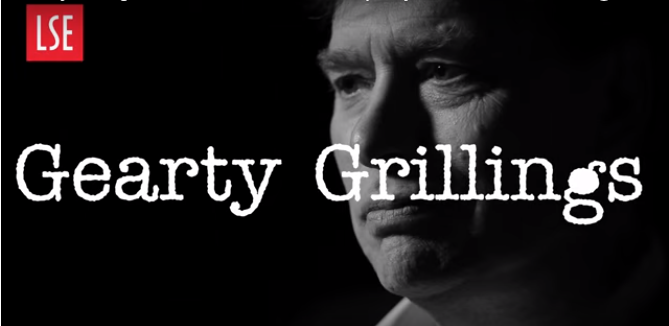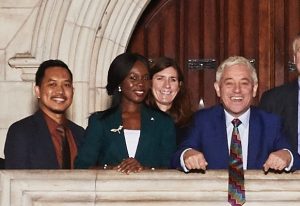
Tell us about the British Council Future Leaders Connect Programme?
The Future Leaders Connect Programme is a global network of emerging policy leaders who want to change the world through policymaking. As part of the programme, delegates participated in advanced policy and leadership training, discussed global policy challenges at the UK Houses of Parliament, and met inspirational leaders across the civil society, global movements, public service, the private sector, and research think tanks.
How were you selected, and what is your policy area?
I was selected as one of 50 delegates from 15,500 applications. Forty-nine other amazing delegates were chosen from Canada, Egypt, India, Indonesia, Kenya, Mexico, Morocco, Nigeria, Pakistan, Poland, Tunisia, the UK, and the USA.
My policy area is Forced Displacement. At the selection event, I presented my policy vision on Internally Displaced Persons (IDPs), to a panel of judges and a diverse audience of private and public sector leaders, non-profit organisations, and policy leaders. I was selected as the audience choice winner.
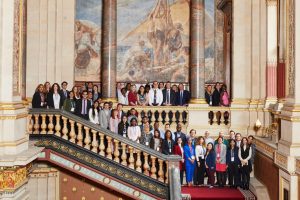
Why Internally Displaced Persons?
Internally Displaced Persons are among the most vulnerable people in the world today. A total of 41.3 million people globally were estimated to be living in internal displacement as a result of conflict and violence at the end of 2018 (the highest IDP figure ever recorded). In the North-East of Nigeria, there were over 1.8 million IDPs as a result of the BokoHaram conflict at the end of 2018. 79% of them are vulnerable women and children who face discrimination, exploitation, and abuse to meet their basic needs. They live in camps or host communities, and many of them have been displaced for more than four years.
I want to see a world where people who have been forced to flee their homes are empowered through psychosocial support, education, and vocational training to improve their self-confidence, rebuild their livelihood and enable reintegration into the society with dignity.
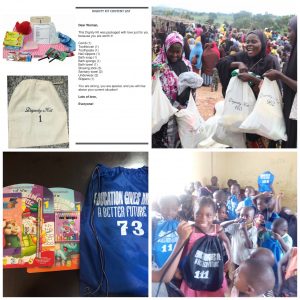
How did it all begin for you?
About four years ago, I was driving to work in Lagos, Nigeria. I listened to the radio as I was stuck in the usual morning traffic. The news segment came up, and they discussed the challenges men, women, and children faced as they were forced to leave their homes to survive the BokoHaram attacks. I knew at that moment that I wanted to do something about it, but I had no idea what or how. I got to my office where I worked as a lead research analyst and asked myself a simple question; what skill do you possess right now that can make a difference? So, I turned to research. I published my first report titled “An Integrated Approach to Rehabilitating IDPs with dignity” in 2015.
Why do you want to draw attention to IDPs?
I believe that there is a need for psychosocial and self-reliance support during the period of displacement. The daily stressors of living in displacement for prolonged periods affect mental health and overall well-being. People are separated from family, suffer abuse and exploitation, isolation, anxiety, and are unable to meet their essential needs.
Traditional aid models are short-term focused and may lead to aid dependency, which undermines the capacity of individuals to rebuild their lives. During protracted displacement, we need a more effective way to empower IDPs, using simple psychosocial interventions and vocational training support to help them develop confidence and achieve self-reliance to rebuild their lives with dignity.
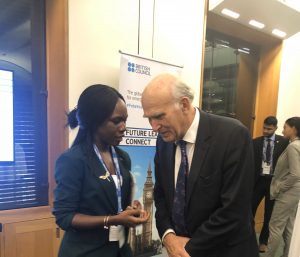
How do you plan to do this in the long-term?
I want to effect change through policy. The idea is to use bottom-up interventions to create the evidence needed to inform self-reliance policies for IDPs. At the LSE, I am working on a Policy Paper on this topic, which will look at how these interventions can make a difference and form the basis for a more effective model of sustainable transition for displaced persons.
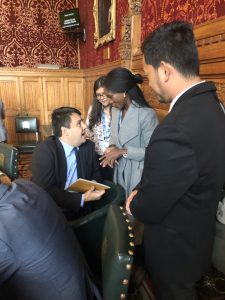
Toluwalola Kasali, presenting a copy of her book to Stephen Twigg, Former Chair of the International Development Select Committee, House of Commons, UK. Left to Right; Stephen Twigg (Former Chair of the International Development Select Committee, House of Commons, UK), Javeria Khalid (British Council Future Leader), Toluwalola Kasali (British Council Future Leader), Rahman Adi Pradana (British Council Future Leader).
Tell me what you have been doing?
The initial focus was on the basic humanitarian support of food, water, and clothing with the help of amazing friends, family, and volunteers. However, spending time with people across the Area 1, Kuchingoro, Wassa, and Kuje IDP camps around Abuja, it became clear that these short-term interventions were unsustainable and would achieve unintended consequences of aid-dependency. That helped to adjust my focus to providing the support required to rebuild their lives and regain their dignity. I have focused on:
- Advocacy for the incorporation of psychosocial support to the immediate humanitarian response for Internally Displaced Persons.
- Bottom-up interventions: dignity kits, vocational skills training, and education support.
- Psychosocial and physical health support.
- Research and reporting aimed at influencing policy towards sustainable solutions.
More information can be found here: https://myinternallydisplacedpersons.org/
What were your most memorable moments at the programme?
First, the people. I had the opportunity to learn alongside people with passion and knowledge for the change they wanted to see.
One of my memorable moments was the opportunity to present a copy of my book, “My Name is Aisha,” to Stephen Twigg, the former Chair of the International Development Committee, House of Commons, UK. It is a collection of stories from people who had been forced to flee their homes. The idea was to create awareness by getting them to tell their stories in their own words – they talked about escaping the militants, their journey to safety, and living in displacement. This book is free and can be downloaded online here: https://wp.me/Pa3rxo-1U.
Another memorable moment was meeting the former Speaker of the House of Commons, John Bercow. I listened to him share his challenges and triumphs as an individual and a leader of the House of Commons.
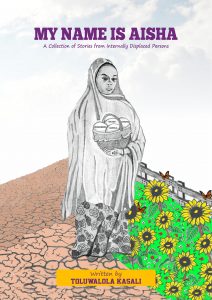
Book Cover – “My Name is Aisha”
What was one of your best sessions in the programme?
My most memorable session was a panel discussion that included Lord Richard Wilson of Dinton GCB, who is a Crossbench Member of the British House of Lords, and former Cabinet Secretary and Head of the Home Civil Service. He discussed the challenges faced by policymakers and the need to understand the role of power and politics in policymaking. A few points that stuck with me include:
- Progress/success is not linear.
- Policymaking cannot be separated from politics.
- The timing of policy is key.
What do you hope to achieve?
I want the work I do to have a sustained impact on people’s lives. I want my life to be meaningful and impactful. I do not believe that I can change the world by myself, but I do believe that I can play a part in my own corner to make a difference, and that is what I plan to do.
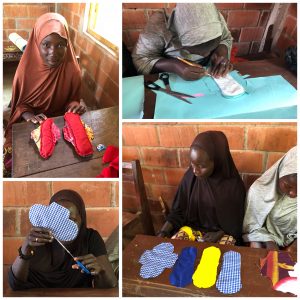
Is this the only policy area of interest?
No. I am passionate about solving issues around social injustice. About 10 years ago, while living in London, I was concerned with the youth and knife crime. I carried out primary and secondary research to play my part in understanding the underlying issues and make recommendations. The outcome was a published report which I submitted to the UK Government.
As an individual, what key lessons stand out for you?
As an individual trying to make a difference, these experiences have reminded me that people must remain at the centre of our solutions. I don’t want to ever lose sight of the real people and human lives behind the numbers. As the policy issues we face in our society become more complex, it is crucial not to lose sight of the people.



